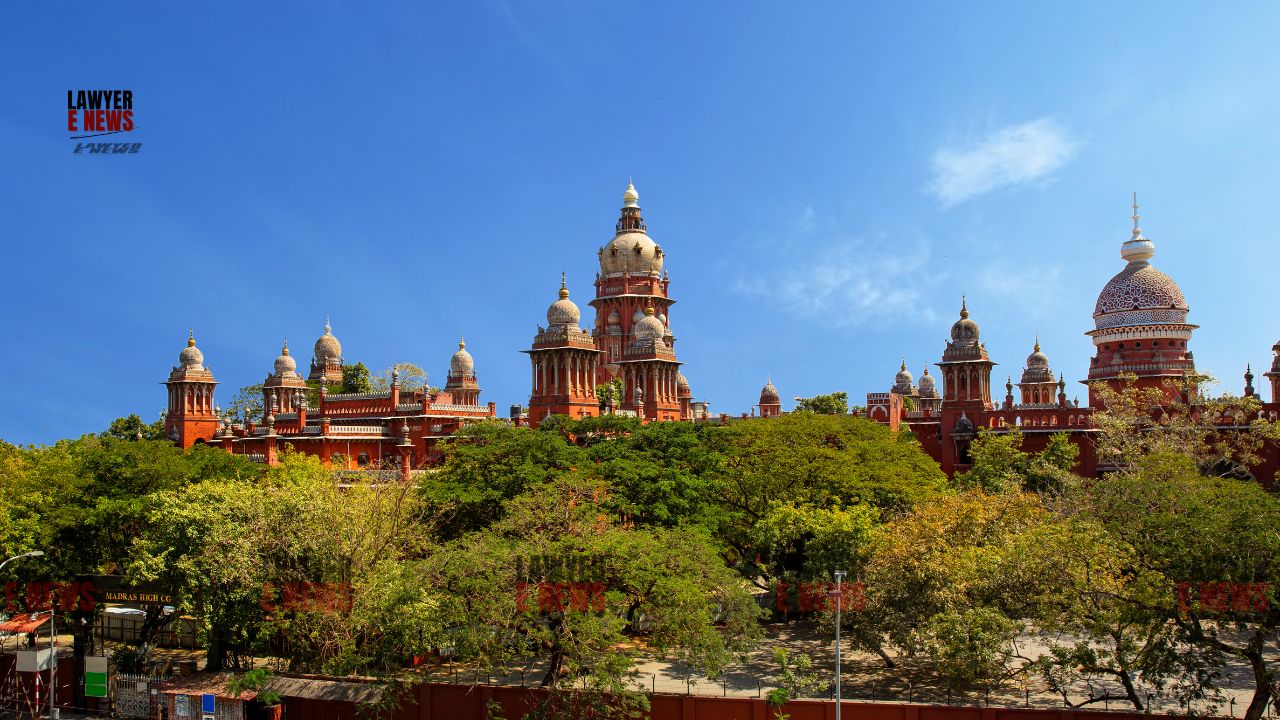-
by Admin
15 February 2026 2:16 AM



In a Latest Judgement, Madras High Court delivered a significant judgment in S.A. No. 224 of 2021, partially allowing the appeal in a partition dispute over ancestral property. The Court ruled that the plaintiff, Munusamy Naidu, is entitled to 1.26 acres of land as per a 1982 Partition Deed but not the 1.36 acres he claimed. The defendants, Gurrappa Naidu and others, were granted an easementary right over a cart track in the disputed land.
The dispute arose over ancestral property initially owned by Appaiyan @ Munusamy and Pappammal, who had four sons, including the plaintiff and the first defendant, Gurrappa Naidu. After their parents' demise, the sons executed a Partition Deed in 1982, dividing the property. According to the deed, the plaintiff was allotted 1.26 acres, and the first defendant was allotted 0.88 acres in Survey No. 663.
However, a subsequent 2010 Partition Deed created by the defendants included an additional 11 cents of land that the plaintiff claimed was part of his allotment. The plaintiff filed a suit seeking a declaration of title over 1.36 acres, alleging trespass by the defendants.
The plaintiff argued that, based on boundaries described in the 1982 Partition Deed, he was entitled to 1.36 acres. The defendants countered that the plaintiff could not claim more than the 1.26 acres specified in the deed, especially since the land had been subdivided without their notice under the UDR scheme.
The Court upheld the legal principle that "boundaries prevail over extent," but noted that in this case, the extent mentioned in the 1982 Partition Deed (1.26 acres) could not be disregarded. The Court found that while boundaries were relevant, the plaintiff had no right to claim more than what was allotted to him in the deed.
The Court confirmed the defendants’ easementary right to use the cart track in the plaintiff’s land, as established in the 1982 Partition Deed. This access route was necessary for the defendants to reach their own portion of the land.
Justice R. Sakthivel ruled that the plaintiff was entitled to 1.26 acres of land as per the Partition Deed and not the 1.36 acres he claimed. The Court also validated the defendants' right to the cart track for accessing their property. However, the Court partially invalidated the defendants' 2010 Partition Deed to the extent that it included more land than was legally allotted to them.
"The plaintiff cannot claim more than the extent of Acre 1.26 allotted to him under the Partition Deed, especially when the four boundaries indicate that some land belonging to the first defendant exists on the northern side of the plaintiff's land."
The Court directed that the 2010 Partition Deed be binding only for the 10 cents of land, rather than the 11 cents claimed by the defendants.
The Madras High Court’s ruling provides clarity on the interpretation of boundaries versus extent in partition deeds, reinforcing that parties cannot claim more land than what is explicitly mentioned. The judgment also affirms the importance of easementary rights in accessing partitioned land.
Date: 15th October 2024
Gurrappa Naidu & Ors. vs. Munusamy Naidu
